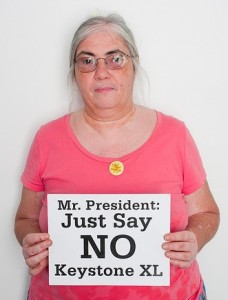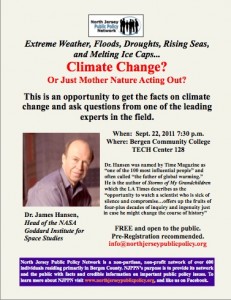Update: See separate post on actions for moving towards a permanent ban on fracking
The New York City Council has a great synopsis about why fracking shouldn’t be allowed in the Delaware River Basin where the Marcellus Shale formation sits
The Delaware River is the critical water source for over 15 million people — five percent of the U.S. population — including residents of New Jersey, Delaware, Philadelphia, and 8 million New Yorkers. Furthermore, experts agree that hydraulic fracturing could contaminate drinking water, causing irreparable harm and costing taxpayers billions of dollars. The Delaware River Basin Commission (DRBC), an agency composed of representatives from four states and the federal government, is taking steps to finalize regulations for hydraulic fracturing in the area near the Delaware River in Pennsylvania. While thousands of gas wells have been developed in Pennsylvania in recent years, development of hydraulic fracturing has been much more limited in the area near the Delaware River due to the area’s status as a critical drinking water source for five percent of the U.S. population.
On September 29th, Councilmember James Gennaro introduced a resolution calling on the DRBC to halt the issuance of regulations for gas production using hydraulic fracturing for water withdrawal for the purpose of hydraulic fracturing within the Delaware River Basin until a cumulative impact study is completed to assess the risks and inform the development of adequate regulations for hydraulic fracturing in the Delaware River Basin.
New York Times writer Eliza Griswold reports on the local environmental dangers of fracking, a practice which in the regions it takes place is ruining water supplies in locations across the country, corroding home and business water delivery pipes and appears to be killing pets and farms animals too. Griswold was directed by a Range Resources spokesman to move away from a “fracking pond” containing chemically treated waste water that had been used in the company’s fracking process which Griswold observed to be sitting in a catch basin at the top of a watershed (EPA definition).
Griswold points out
In Amwell Township, your opinion of fracking tends to correspond with how much money you’re making and with how close you live to the gas wells, chemical ponds, pipelines and compressor stations springing up in the area. Many of those who live nearby fear that a leak in the plastic liner of a chemical pond could drip into a watershed or that a truck spill could send carcinogens into a field of beef cattle. (According to the Pennsylvania Department of Environmental Protection, 65 Marcellus wells drilled this year have been cited for faulty cement casings, which could result in leaks.) But for many other residents, including Haney’s neighbors, the risks seem small, and the benefits — clean fuel, economic development — far outweigh them.
One of her escorts through Amwell Township was 64 year old farmer and science teacher Ray Day of who, “like most of his neighbors, trusted the companies to use best practices. A man’s word means a lot here. After all, without regulation or oversight, he and other farmers worked together to do things like fence streams to keep cattle out of them.”
I first learned of the danger to water supplies caused by fracking when my friend, Sabastian Belfon, returned from visiting family in Arizona. “Kimi, I kept seeing all these pickups driving around with huge tanks in their beds in the back, so I asked my family what was going on.” They told me that’s how most people have to get their water now – by trucking it in. Because of hydrofracking, groundwater’s contaminated now. Just Google the phrase arizona people truck drinking water frack to produce a long list of problems people in that state are having with their drinking water, which some apparently can ignite simply by putting a flame near the water as it runs out of their kitchen sink faucet. Bob Donnan of Pennsylvania blogs about the water in his region turning putrid due to fracking,
TDS, or total dissolved solids in our drinking water were blamed for its chunky state. But water company officials were quick to tell us that even though it may spot glasses in your dishwasher, there is nothing to worry about — the water is safe to drink. Sure, if you can get past drinking something tasting nearly as bad as the prep for your last colonoscopy!
Turns out some of the low river flow, and much of the TDS chunkiness, resulted from the Marcellus Shale gas boom. Unless you have been sleeping, or residing on Mars for the past year, you know about this madhatter gas drilling boom that’s going on, with the epicenter in Hickory, Pennsylvania. Estimates indicate the Marcellus Shale holds enough gas to supply the entire US for 14 years, so main players ante up like it’s the California Gold Rush.
Water is pumped out of streams anytime, anywhere . . . The Pennsylvania Clean Streams Law is supposed to protect drought- stricken streams from de-watering, but is this law being enforced?
Mark Ruffalo stood with Occupy Trenton at the huge anti-fracking rally in Trenton yesterday (on 11/21) with Josh Fox, creator of the movie Gasland, to address the hundreds of protestors and Green Drinks co-host Sally Gellert was there too. Gasland‘s home page features a FAQ on fracking terms, including:
What is the Halliburton Loophole?
In 2005, the Bush/ Cheney Energy Bill exempted natural gas drilling from the Safe Drinking Water Act. It exempts companies from disclosing the chemicals used during hydraulic fracturing. Essentially, the provision took the Environmental Protection Agency (EPA) off the job. It is now commonly referred to as the Halliburton Loophole.What is the Safe Drinking Water Act?
In 1974, the Safe Drinking Water Act (SDWA) was passed by Congress to ensure clean drinking water free from both natural and man-made contaminates.What is the FRAC Act?
The FRAC Act (Fracturing Responsibility and Awareness to Chemical Act) is a House bill intended to repeal the Halliburton Loophole and to require the natural gas industry to disclose the chemicals they use.
Slicing and dicing up the earth for natural gas through fracking = no good, no way.

